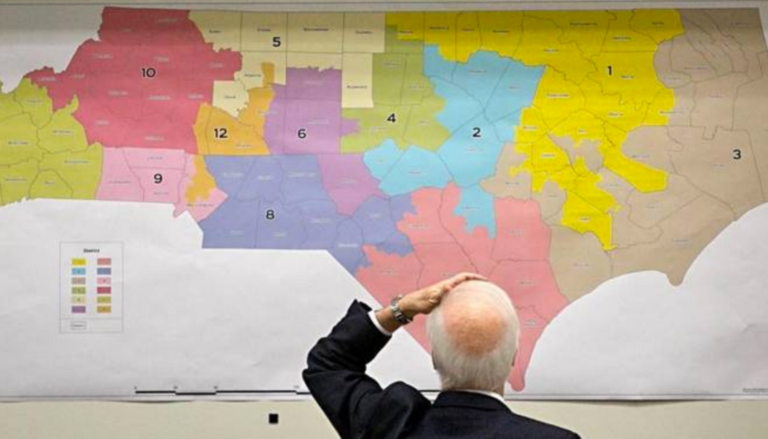
Durham, N.C. — In a March 2019 amicus brief filed in the U.S. Supreme Court case Rucho v. Common Cause, voting advocacy groups Democracy North Carolina and You Can Vote detailed harms to voters wrought by partisan gerrymandering in North Carolina.
The “friend of the court” brief documents both organizations’ interactions with voters and potential North Carolina voters in all corners of the state, who have expressed a belief that the outcome of the congressional elections in their districts are “predetermined” because the district lines have been drawn to favor one party or the other, especially among youth and minorities communities.
Kate Fellman, You Can Vote founder and Program Director, reports that voters “feel that the elections are predetermined” and that, as a result, the “the level of mistrust in the community regarding voting is staggering.”
Democracy North Carolina Southeastern Regional Managing Organizer Val Applewhite echoed Fellman’s sentiments, reporting that citizens have a “loss of faith in government” as a result of the legislature’s repeated efforts to dilute their votes.
The brief also highlights how a perception among North Carolinians that their votes have no impact correspond with statistical evidence showing that partisan gerrymandering has had the effect of dividing communities of interest and minimizing the overall impact of North Carolinians’ votes. If allowed to stand, the also brief argues, the legislature’s “deliberate dilution of North Carolinians’ votes is highly likely to persist into the future” and politicians drawn into “safe” districts are and will remain unresponsive to voter concerns.
The U.S. Supreme Court will hear oral arguments in Rucho v. Common Cause on March 26, 2019.